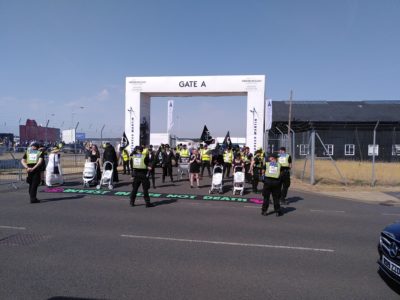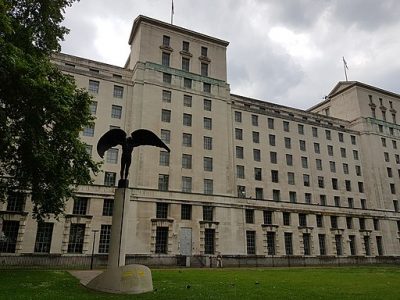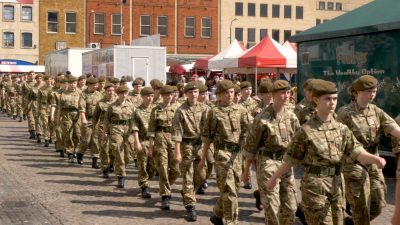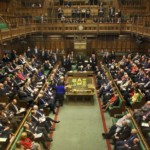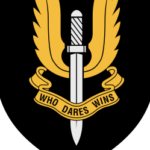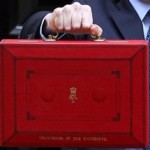Figures reveal high number of visits by armed forces to Norfolk schools
ForcesWatch press release
Figures obtained under Freedom of Information reveal that the armed forces are visiting nearly all secondary maintained schools and academies in Norfolk and some schools have activities run by the military many times a year.
Event: Questioning the presence of the military in schools, Tuesday 23rd October, The Cube Room, The Forum, 2 Bank Plain, Norwich, Norfolk NR2 1TF, 6.30-8pm
Figures obtained under Freedom of Information reveal that the armed forces are visiting nearly all secondary maintained schools and academies in Norfolk and some schools have activities run by the military many times a year. (1)
Since September 2010 there have been a total of 231 visits to 60 schools and colleges (2).
Over 90% of secondary maintained schools and academies and colleges in Norfolk were visited by the armed forces an average of 4 times during a two year period.
Several primary schools also had the armed forces visiting year 6 classes with careers presentations. Only 3 independent schools in the whole county were visited.
East Norfolk 6th Form had the highest number of visits, with the armed forces recording having been at the educational institution 18 times since September 2010. The majority are for careers briefings, award evenings, curriculum support, presentations and team building events.
The figures have been obtained by ForcesWatch who are concerned about the level of military involvement in UK schools and colleges across the UK (3).
ForcesWatch are hosting a public discussion on whether the military should have a presence in Norfolk’s schools. On the 23rd October from 6.30-8pm in The Forum, they will be joined by Green Party Councillor Lesley Grahame and local youth worker, Mell Harrison to discuss the role of the military in education. The local Armed Forces Recruitment office has been invited to send a representative. This event aims to encourage a healthy debate exploring whether the military agenda is compatible with that of the schools they visit.
The armed forces visit many thousands of schools each year across the UK providing free resources, presentations and recruitment activities (4). Recently, politicians and senior armed forces officers have called for even greater military engagement with young people in schools, and the Department of Education have established a number of schemes under their ‘military ethos and skills’ programme, presenting military intervention as a solution to education problems (5).
While the armed forces claim that they do not visit schools and colleges in order to recruit, their own reports identify recruitment of young people into the forces as one of three outcomes from such visits, along with raising awareness about the armed forces and social development (6).
Teachers across the UK have previously questioned whether it is appropriate for the armed forces to engage with young people in schools and colleges (7).
Contact:
If you would like to discuss the issues raised by this event, or would like to cover the event itself, please email education@forceswatch.net
For further information: http://www.forceswatch.net/content/public-debates-questioning-presence-military-schools
Notes:
1. Figures obtained from the British Army, Royal Navy and Royal Air Force from September 2010 to July/August 2012 are now available at: http://www.whatdotheyknow.com
2. ‘Military activities in schools: Norfolk report’, ForcesWatch internal document. For a copy or for figures relating to Edinburgh’s schools please contact Will at education@forceswatch.net
3. ForcesWatch is a UK organisation that challenges the ethics of military recruitment and questions the climate of uncritical national pride in the armed forces. http://forceswatch.net
4. Youth/schools engagement surveys conducted by the MoD suggest that, at a minimum, around 900,000 children (mainly 8-19 years old) are contacted each year, which is about 15% of the age group.
5. See the ForcesWatch briefing ‘Military activities in UK schools’ (Sept 2012):
http://www.forceswatch.net/content/public-debates-questioning-presence-military-schools
6. Youth Engagement Review: Final Report, MoD, December 2011
7. In 2008 the NUT passed a resolution to support efforts to counter military engagement with schools. The resolution was passed in light of the 1996 Education Act’s ban on political bias within the classroom, arguing that the armed forces are not apolitical and represent political interests. http://www.teachers.org.uk/node/7416
See more: military in schools/colleges, ForcesWatch

